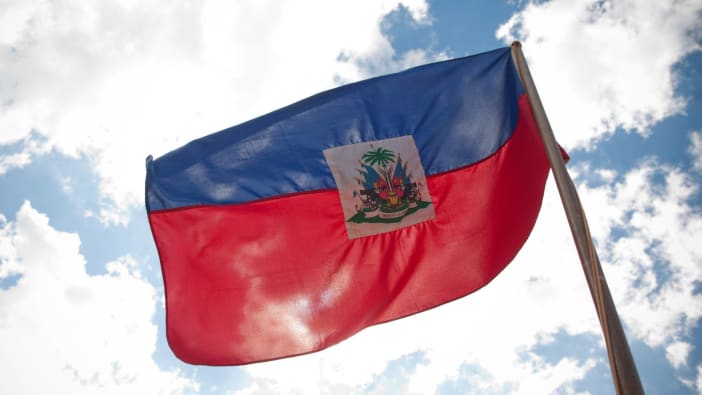The earthquake in Haiti on 12 January 2010 caused widespread devastation. Families and communities were torn apart. As people wandered around the streets, homeless, starving and terrified, natural leaders emerged among the survivors. These new leaders mobilised people to concentrate on their families and immediate needs rather than everything they had lost.
Ernst Orelien, aged 32, was one of those who took responsibility and started helping the people who were suffering the most.
'My family were all right and my house was still standing, but I moved into the grounds of the school with everyone else who had lost their houses so I could start helping people.'
Ernst moved into a makeshift shelter with some of his friends and started running around the streets of Port-au-Prince, looking for materials to make shelter and finding food for the two hundred families camped in the grounds of a school.
He contacted all the major international aid organisations and kept on asking them for supplies of tarpaulin, food, water carriers, pots and pans - all the things that people needed after the disaster claimed all of their possessions.
'I didn't want to be a leader, because the task of leading people requires lots of skills, and you need to know how you're going to do it.'
He knew that leading meant taking practical action and doing the hard work when people all around him could not do anything for themselves.
'I don't like to promise and never accomplish. People didn't want words in the beginning - they wanted action.'
Ernst worked tirelessly for the people in his community, and six months on, continues to do the same work. He says it is harder now as people accept that things are never going to be the same again.
'We have to be optimistic. We are supposed to have had more people committing suicide and going mad in Haiti now - but we haven't because we have hope.'
And hope is what he has instilled in this community. Despite his young age, they have started calling him Papy, meaning Father. He has given up everything to be there for people when they needed him most. One of the ladies of the camp said she would not have survived without him, and everywhere we go women and children greet him and call out to him. He is the rock of this community and everyone here knows they can rely on him.
'I've grown a lot through this experience and this has taught me that if you plan something as a group you have to work together to accomplish it. Rather than relying on those in authority, we have had to take responsibility ourselves. Every Haitian has to participate in rebuilding Haiti. I would never ever say there is no hope.'
Lynsey Pollard is the Haiti Communications Officer at Tearfund. She met and interviewed Ernst Orelien during a visit to Haiti in summer 2010.










